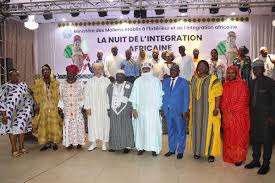
Diplomats and cultural leaders gathered in Bamako for the annual African Integration Night, showcasing traditional cuisines and cultural exchanges while addressing the diaspora’s role in healing historical wounds from slave trade and colonization across Africa and the Sahel region.
The event’s theme focused on examining how the Malian diaspora can contribute to reparations for historical injustices inflicted through slavery and colonial exploitation. Traditional food presentations and tastings formed the evening’s centerpiece, creating opportunities for cross-cultural appreciation among participating nations.
Moroccan Ambassador to Mali and President of the African Ambassadors Group, Driss Isbayène, emphasized the event’s significance in promoting continental diversity. “This evening allows everyone to journey through Africa’s various regions and taste specially prepared dishes,” he noted, highlighting how the celebration commemorates liberation from colonialism while strengthening African solidarity.
Hamadoun Kassogué, a local dramatist, advocated for multiplying such unifying events, stating that frequent cultural exchanges could foster greater harmony among African nations. His vision aligns with broader objectives of cultivating cohesion, peaceful coexistence, and continental love through shared experiences.
Mali’s Minister for African Integration, Mossa Ag Attaher, characterized the event as showcasing unity transcending ethnic, religious, national, and regional diversities. He emphasized how melodies, rhythms, colors, and narratives embody integration aspirations, infusing common cultures with vibrant, unifying energy.
The minister expressed conviction that African unity stems primarily from shared history, with cultural identity affirmation representing a common concern. Sixty-nine years after the Organization of African Unity’s creation, participants celebrated progress across multiple domains while envisioning improved futures through strengthened cooperation, solidarity values, and fraternal bonds uniting the continent’s rich traditions and dynamic youth populations.
